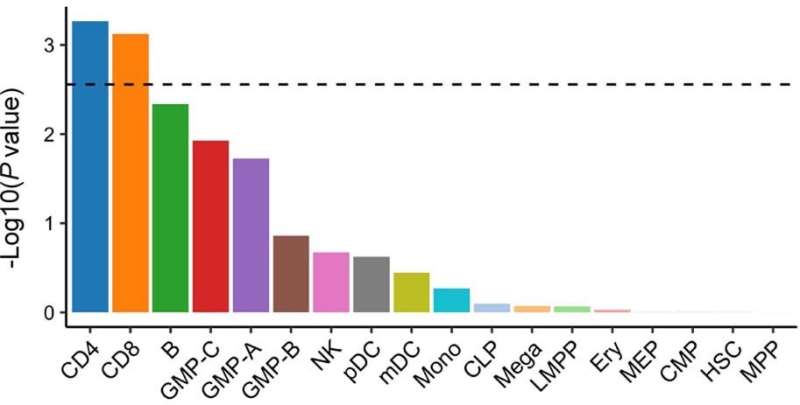This article has been reviewed according to Science X's editorial process and policies. Editors have highlighted the following attributes while ensuring the content's credibility:
fact-checked
peer-reviewed publication
trusted source
proofread
New genetic risk factors for rheumatoid arthritis revealed by analysis of multiple ancestry groups

In a large genetic study published in Nature Genetics, RIKEN researchers have identified 124 genetic markers, 34 of which are novel, that can influence the risk of developing rheumatoid arthritis. This information could help to develop new treatments for the painful and often debilitating condition.
Rheumatoid arthritis is an autoimmune disease where the immune system mistakenly attacks a person's joint tissues, causing inflammation and pain. It is a complex disease that develops as a result of interactions between a combination of genetic and environmental factors.
Many genes are involved in determining a person's susceptibility to rheumatoid arthritis, with each contributing a small amount to the overall risk of developing the disease. A better understanding of the genetics of the condition could help advance new treatments for it.
"While there have been some recent advances in the treatment of rheumatoid arthritis, these medications don't work for everyone—and a cure has yet to be identified," says Yukinori Okada of the RIKEN Center for Integrative Medical Sciences. "Genetic research has the potential to advance our understanding of the disease, revealing new clues that could inspire effective novel treatment strategies."
To identify genetic markers associated with a condition, scientists compare the genomes from healthy people with those from people with the condition in genome-wide association studies (GWAS). But so far, the largest of these studies for rheumatoid arthritis have focused mainly on people of European or East Asian ancestral background.
Now, Okada and his colleagues have conducted a large multi-ancestry GWAS that analyzed the genomic data of more than 275,000 people, 65% of whom had non-European ancestry. In participants with European, East Asian, African, South Asian and Arab ancestries, the analysis identified 34 genetic markers associated with rheumatoid arthritis that had never been found before. Candidate genes at these new locations are involved in the immune system and joint tissues, revealing novel insights into the causes of the disease.
"Our study is one of the largest and most ancestrally diverse GWAS of rheumatoid arthritis to date, revealing several new insights into the biology of the disease," says Okada.
While most genetic signals were shared across the different ancestries, some were ancestry specific.
Polygenic risk scores attempt to calculate a person's risk of developing a disease based on their genome. The researchers found that such scores for rheumatoid arthritis were more accurate when based on multi-ancestry GWAS than on single-ancestry GWAS.
"The study highlights the importance of further efforts to diversify studies and increase sample sizes from underrepresented ancestries to improve the power of these analyses—and the accuracy of polygenic risk scores, especially in non-European ancestral groups," says Okada.
More information: Kazuyoshi Ishigaki et al, Multi-ancestry genome-wide association analyses identify novel genetic mechanisms in rheumatoid arthritis, Nature Genetics (2022). DOI: 10.1038/s41588-022-01213-w




















